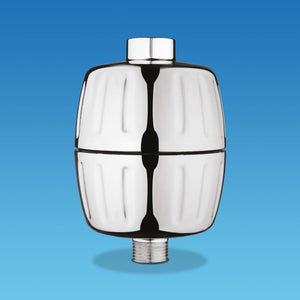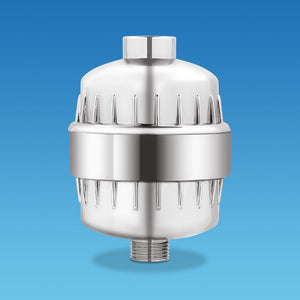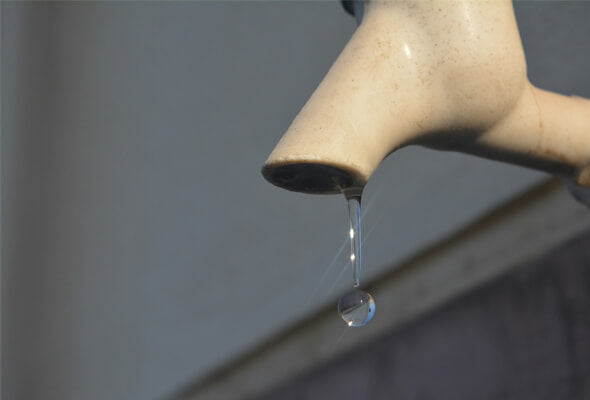If you’re wondering how to get rid of sulfur smell in water, you’ll need to use a chlorine bleach solution to disinfect and flush your water heater. This is essential to removing the rotten egg smell and making sure that any water you use moving forward is sanitary.
It matters for both cold and hot water, as you don’t want either one to be smelly, contaminated, or otherwise unfit for use.
Note: You will always follow the manufacturer's instructions for cleaning and flushing your water tank.
Why does my water smell like rotten eggs?
If you smell a “rotten egg” odor, this is hydrogen sulfide gas. Hydrogen sulfide gas produces an offensive "rotten egg" or "sulfur water" odor and taste in the water. Heat forces the Hydrogen sulfide gas into the air which may cause the odor to be especially offensive during a hot shower.
Occasionally, a water heater is a source of hydrogen sulfide odor. By the time your water carries a rotten egg smell or gives off a hydrogen sulfide odor, your plumbing system has some serious problems.
The putrid sulfur smell is ultimately the result of rock and soil decaying and undergoing various chemical reactions. This is dangerous for plumbing systems and your water heater tank. When hydrogen sulfide gas gets into your water supply, it will not only stink, but it can also begin to taste like rotten eggs.
Suffice it to say once your household water begins to have these problems, you’ll need an effective cleansing method for your water system. Most people don't know that most water heaters have a life expectancy of only 6 years.
You may want to try running cold water only in the shower just to see how much sulfur you smell VS running hot water only - just to smell the water, not to shower in either extreme temperature. That should give you a good idea if it's a problem with your water heater or not.
What are the causes of the sulfur smell in the water?
Believe it or not, there are many different factors that can lead to your hot and cold water smelling like hydrogen sulfide. Chemical reactions and decay in water heaters are the most common culprits of rotten egg odor.
However, this problem has also been linked to other harmful concentrations, such as iron, iron sediment, and sulfur bacteria, in your plumbing system or well. If your hot water heater is contaminated with sulfur bacteria, this commonly causes a rotten egg odor in your water supply.
How to remove sulfur or rotten egg smell from water
If you’re ready to free your hot and cold water from hydrogen sulfide and the dreaded rotten egg smell, there are some important steps you’ll need to take.
1. Repair your water heater

An unclean water heater can easily begin to form hydrogen sulfide, iron, bacteria, and other unwanted chemicals. Thankfully, getting this fixed is a relatively straightforward process.
To remove hydrogen sulfide and the smell of rotten eggs, mix two pints of 3% hydrogen peroxide with 40 water gallons. Once you have this solution, you’ll need to pour it into your pipes and tank. This hydrogen peroxide solution is the first step towards purifying your water system and removing the foul odor.
2. Service your water softener
When a whole house water softener becomes contaminated with sulfur bacteria, this creates hydrogen sulfide gas, thus generating a rotten egg smell. To prevent this, a whole house water softener needs to be regularly maintained with thorough cleanings.
Only then can you be sure that your drinking and cooking water is safe. Getting rid of the sulfur smell in a water softener is a straightforward process. First, you’ll need two gallons of water mixed with either dish detergent or another liquid cleanser.
This is great for cleaning different components, from the salt reservoir and nozzle to the venturi. Next, you’ll need to recharge your whole house water softener. This allows its resin beads to get rid of hard water minerals, which helps eliminate sulfur odor and continue collecting new ones as they materialize.
You don’t want these minerals to clog up on your water softener over an extended time period, as this is linked to nasty water smells. The recharging process is simple. All you need to do is place the softener inside a salty water reservoir and then siphon out some of the water with a tube.
After the reservoir empties out, you’ll then have a recharged water softener. As you wrap up, make sure to clean your reservoir before refastening the machine intake tubs to your softener.
3. Clean your well and plumbing system

Neither cold water nor hot water should have hydrogen sulfide or a stench like rotten eggs. Your well and plumbing system are best cleaned with a chlorine bleach solution.
Mix this solution with water before pouring it into your well and casing. Once you’ve attached an outdoor spigot to a garden hose, allow this to run inside your well for about 30 minutes. By this time, nothing should smell like rotten eggs but should instead smell like chlorine.
After you’re done cleaning, reseal your well and allow it to sit for no less than eight hours. By the time you restart your well and plumbing system, you should have chlorine-free well water that doesn’t smell strange.
4. Replace the magnesium anode
In every hot water heater tank, you’ll come across the magnesium anode rod. This is a vital component that shields the water heater’s inner lining from corrosion and rust. Without the magnesium anode rod, a buildup of hydrogen sulfide occurs, along with rotten egg odor and other water heater problems.
To replace a magnesium anode rod in a water heater, you can follow these steps:
- Turn off the water and power: Turn off the power supply and the cold water supply to the water heater.
- Drain the tank: Partially drain the water heater.
- Locate the anode rod: Find the anode rod on the water heater.
- Remove the old anode rod: Use a 1-1/16 in socket wrench and ratchet or breaker bar to unscrew the anode rod. If it's stuck, you can use a steel pipe for more leverage.
- Install the new anode rod: Wrap the threads of the new anode rod with Teflon tape. Insert the new rod into the water heater and tighten it with the socket wrench.
- Turn on the water and power: Open the cold water supply valve and relight the pilot.
You should replace your water heater's anode rod every three to five years. A magnesium anode protects the steel in the water tank from corrosion and leaks.
Without regular maintenance, the anode rod can essentially make it a carrier of hydrogen sulfide and can cause damage to the inner lining of your water heater. After completing this process, you should no longer be dealing with hydrogen sulfide gas or any other element that reaches harmful concentrations.
5. Try a water softener or a chlorinator-activated carbon filter
While water softeners can chemically reduce sulfates, the same also applies to the chlorinated activated carbon filter. This provides essential corrosion protection by reducing bacterial iron sediment, chlorine, sulfur smell, and other things that you don’t want in your water filter systems.
GAC granular activated carbon filters are very effective when it comes to water treatment. They are especially helpful in blocking harmful chemicals, which are hard to remove from water in many cases.
If you’re noticing sulfur odor, rust from copper and brass utensils, or other remnants of sulfur bacteria, your water could benefit from carbon filtration.
Is sulfur water safe to drink and bathe in?

If you’re wondering how to get rid of the sulfur smell in water, you’re probably also curious about whether or not it’s safe to drink or bathe in. As you might have guessed, there are some very real concerns.
Water that’s been contaminated with hydrogen sulfide gas comes with a stench that can rub off on your body and hair if you bathe in it. This can make you feel less hygienic, especially when you’re coming into contact with other people.
Bathing in cold or hot water that’s got hydrogen sulfide problems won’t necessarily kill you, but it can contribute to body odor and is best avoided. Drinking with hydrogen sulfide gas also comes with some health risks of its own.
Over time, this can dehydrate your body and lead to diarrhea. If you’re constantly ingesting water with hydrogen sulfide gas, you’re constantly coming into contact with sulfur bacteria, which isn’t good for you.
This can be especially toxic for babies whose underdeveloped immune systems are most susceptible to negative reactions like diarrhea. The risks of being regularly exposed to hydrogen sulfide are very real, no matter if you’re consuming cold or hot water.
Thankfully, you can make sure your water does not produce hydrogen sulfide gas.
Can shower head filters solve sulfur-smelling water issues?

As your water flows, you want to make sure it doesn’t have any coliform bacteria or hydrogen sulfide smells. If you’re wondering how to get sulfur smell out of water, the AquaBliss premier shower head filter collection can assist with this. Over the years, AquaBliss has shown a steadfast commitment to making water cleaner and safer.
With high praise from customers, there’s no better place to turn if you’re ready to help filter hydrogen sulfide out of your water. From our Chrome multi stage shower filters to our chrome revitalizing shower filter, each of these can assist with putrid hot or cold water smells.
Our shower filters naturally target a wide range of impurities. With this collection, gone are your days of having to deal with sulfur odors every time you turn on the water. We make your water better by using proprietary system filters that infuse your shower water with healthy minerals.
This proven method balances out personal PH levels and delivers water that you can safely bathe or shower in. If you’re ready to say goodbye to hydrogen sulfide and embrace water that feels (and smells) good, there’s never been a better moment to use an AquaBliss shower head filter.
How sulfur-smelling water can damage your home
Many people wonder how to get rid of sulfur smell in your water source. In reality, however, any source of water that’s been infected with sulfur bacteria can cause great harm to your home.
To say you don’t want these nasty water smells around would be an understatement. When there’s a high concentration of hydrogen sulfide, this has been known to cause silverware stains.
This tainted surface water also has a reputation for destroying plumbing pipes and obstructing irrigation systems. It’s important to remember that the water you use should not have high levels of hydrogen sulfide.
If you try cleaning surfaces, such as glass windows or furniture, the hydrogen sulfide can lead to stains and nasty scents throughout your house. Over time, the sulfur water can begin to wear away at items it comes into regular contact with.
Reduce sulfur smell and hydrogen sulfide in water with AquaBliss
If you’re long overdue for water treatment, the AquaBliss premier shower head filter collection has you covered. Reduce toxic hydrogen sulfide from your shower while reducing sulfur odors in your home.
Remember, hydrogen sulfide may seem harmless, but it can lead to dehydration, diarrhea, and other health complications. In the long run, it’s better to reduce the rotten egg smell from your water than to suffer avoidable problems in your home.
If you have any questions about your best next steps, AquaBliss is here to help. Feel free to contact us here at any time.







